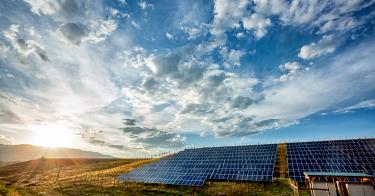The solar industry has feasted on government subsidies for years — a fact that irks conservatives no end. It has nothing to do with solar energy, per se, and everything to do with the belief that fair competition — not the government — should determine winners and losers in energy markets.
But conservatives now find themselves standing alongside the bulk of the solar industry in a trade case that, if wrongly decided, could distort the subsidy-riddled solar energy market even further.
At issue is a petition brought to the U.S. International Trade Commission by two renegade solar manufacturing companies, Suniva and SolarWorld. Citing the rarely used Section 201 of the Trade Act of 1974, these American companies argue that inexpensive imports have caused “serious injury” to domestic solar cell and panel manufacturers — so serious, in fact, that the injured parties cannot survive without steep tariffs on solar imports from all countries.
The proposed tariffs would roughly double the price of solar cell panels. While this might give short-lived protection to a handful of privileged solar manufacturers including Suniva and SolarWorld, it will doom the broader U.S. solar industry and their customers by removing inexpensive choices from the market.
Unsurprisingly, many in the solar industry are closing ranks with conservatives arguing against the tariffs and in favor of free trade policies.
Here are four reasons why granting tariffs in this case would be bad energy and trade policy.
1. It uses the law to pay Paul by robbing Peter. The requested tariffs might shield a privileged few U.S. solar manufacturers that don’t have competitive products for a short time. But that protection would come at the expense of other Americans who finance, install and use solar power. Even smaller tariffs on solar power materials have cost America jobs. For example, tariffs directly contributed to solar company Silicor’s decision to choose Iceland over Mississippi as the location for its new factory.
2. It soaks consumers to benefit what is already one of the most grossly oversubsidized industries in the country. For decades, Congress has spoon-fed solar energy a rich diet of special tax credits, grants, loan programs and other taxpayer-funded goodies. According to the University of Texas at Austin, solar is by far the most subsidized energy source in the U.S. Tariffs would only force customers to pay up yet again with higher solar energy prices.
3. History shows that the tariffs are likely to do more harm than good. In 2002, the U.S. imposed tariffs of up to 30 percent on a variety of steel imports following a Section 201 investigation. A study by economists Joseph Francois and Laura M. Baughman found that in just the first year of the tariffs, 200,000 Americans working in steel-consuming industries lost their jobs because of higher steel prices. Meanwhile, the tariffs provided negligible relief to employment at steel-producing companies.
4. The tariffs are unlikely even to help the few privileged companies they are intended to assist. In an interesting twist to the story, Suniva filed for bankruptcy in April, and SolarWorld’s parent company in Germany did so in May. This is after they received over $11 million each in federal funding and two rounds of protectionist tariffs in 2012 and 2015. Yet they are again asking for special favors.
By Sept. 22, the ITC will either recommend that President Trump take action or dismiss the companies’ petition. The Trump administration should not cave to special interests in the solar industry.
The solar industry should compete in energy markets on its own merits. It should be free of government intervention, both taxpayer-backed subsidies and tariffs and other protectionist trade barriers that prevent U.S. companies from being as competitive as possible.
This piece originally appeared in The Washington Times



